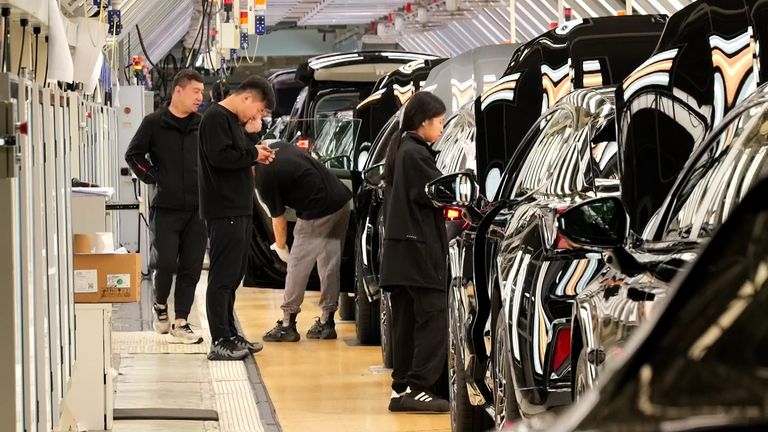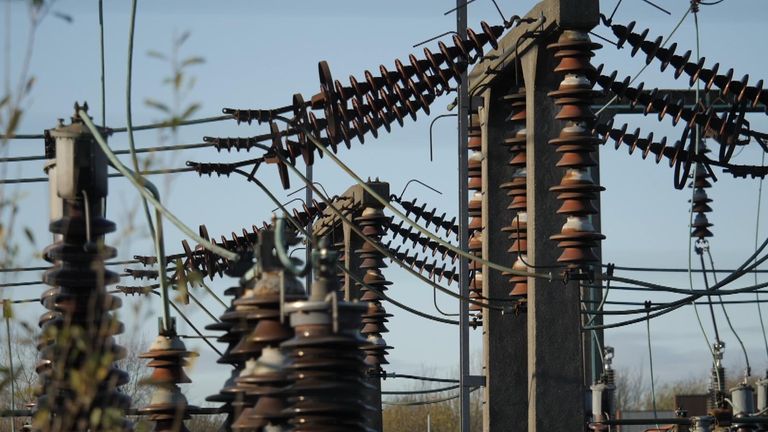The next government is being urged to do more to help drive the transition to electric vehicles as private sales of new pure battery models go into reverse.
According to data covering May released by the Society of Motor Manufacturers and Traders (SMMT), there was a 2% dip in UK sales of new battery electric vehicles (BEVs) among consumers when compared to the same month in 2023.
The organisation’s chief executive said that was despite “very attractive offers” to lure buyers.
Mike Hawes warned manufacturers could not sustain the level of discounting indefinitely and argued a fairer transition was needed with “carrots, not just sticks” required from ministers to help improve future uptake.
Election latest:
Watchdog examining PM’s claims about Labour tax plans
Analysts said weak demand in the private buyer market was a consequence of cost of living pressures on household budgets coupled with concerns about a lack of affordable vehicles and charging infrastructure.
The overall picture for sales was far more rosy.
There were 26,031 BEVs registered in May, up 6.2% on the same month a year ago, steered by large fleet sales.
Hybrids were also a popular alternative. There was a 1.7% rise in total sales of all new models.
The SMMT said of demand for BEVs among private buyers: “This performance… is still below the trajectory mandated on manufacturers by government in its Vehicle Emissions Trading Scheme, which demands 22% of new vehicles sold this year by each brand must be zero emission.
“With a choice of more than 100 EV models now available, and a raft of compelling offers, manufacturers are dedicated to driving change, but meeting targets will require more support.”
It hit out in March at the government’s decision to delay the ban on the sale of new cars powered by petrol and diesel to 2035, saying the policy had backfired due to a slowdown in electric purchases.
The industry had been targeting a 2030 deadline before the government’s U-turn in September last year, on cost grounds.
The SMMT had warned at that time the move would damage investment and prove a backwards step in efforts to combat climate change.
Its suggestions have included the restoration of financial incentives, including scrappage schemes.
None of the main political parties in the election have published their manifestos.
Ian Plummer, commercial director at online vehicle marketplace Auto Trader, suggested manufacturers should shoulder a share of the blame for poor uptake.
“Rising new car prices since 2019 mean that even volume brands are suffering as the middle market is hollowed out”, he wrote.
“The share of new models for sale below £20,000 in the past five years has dropped from 17% to just 4%, underlining the pressure on affordability.”
Jamie Hamilton, automotive partner and head of electric vehicles at the consultancy Deloitte, said: “There needs to be more focus on removing the main barriers preventing the average consumer from contemplating a switch to electric.
“Currently, electric vehicles don’t appear to make sense for consumers, unless they can charge their cars at home overnight.
“As a result, there does need to be a push on creating more publicly available charging stations.
“A raft of new low-cost options in the electric vehicle market are expected to land this year which may tempt consumers to make the transition to electric.”


